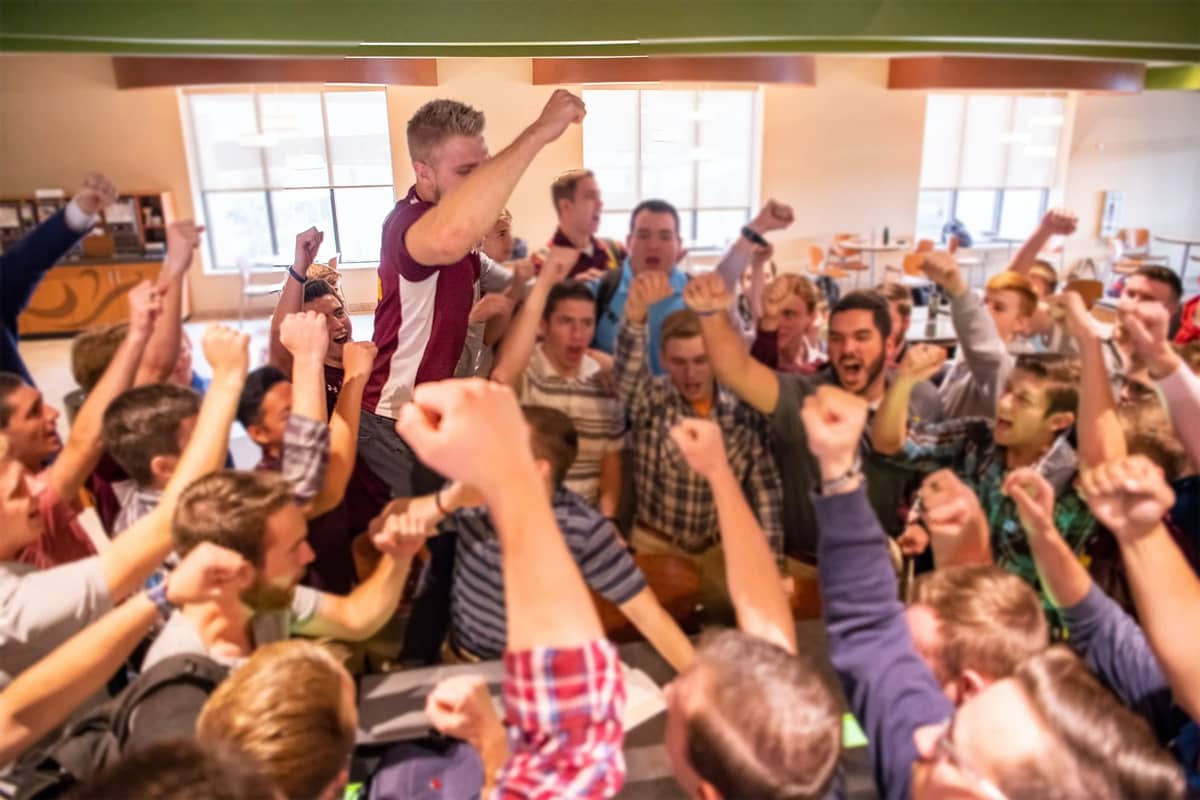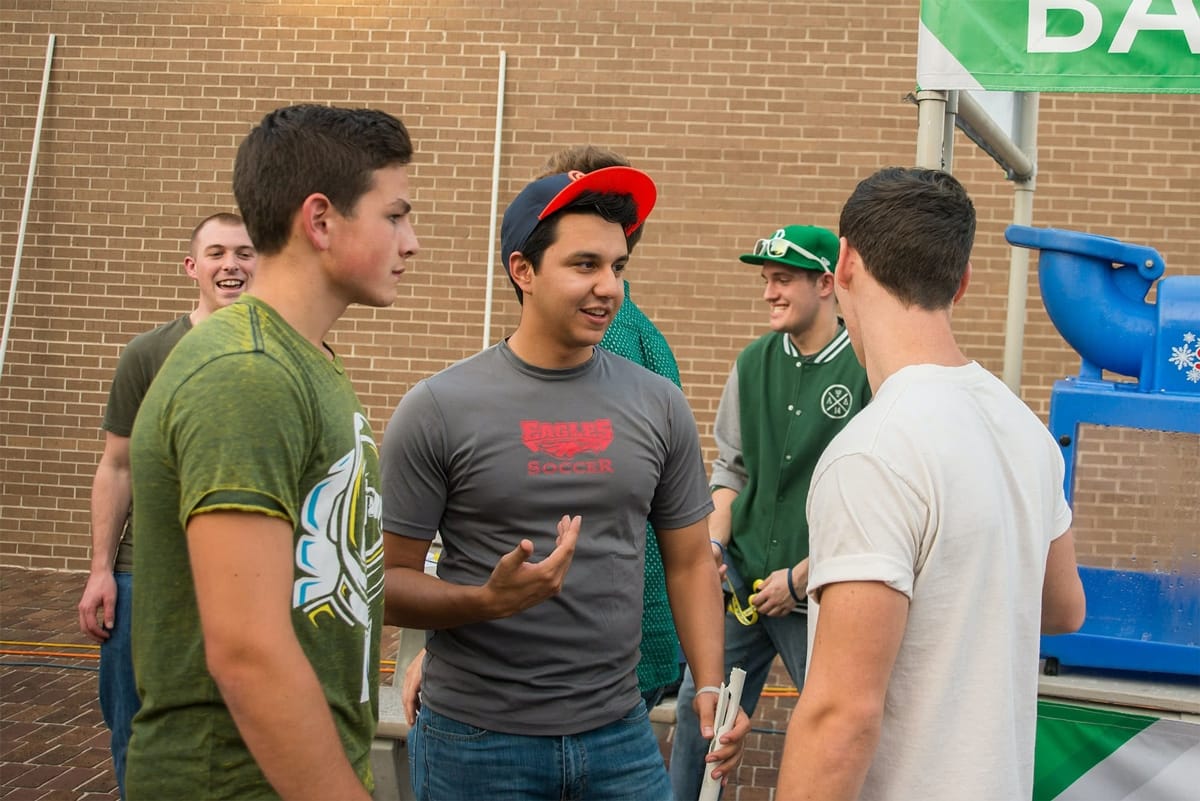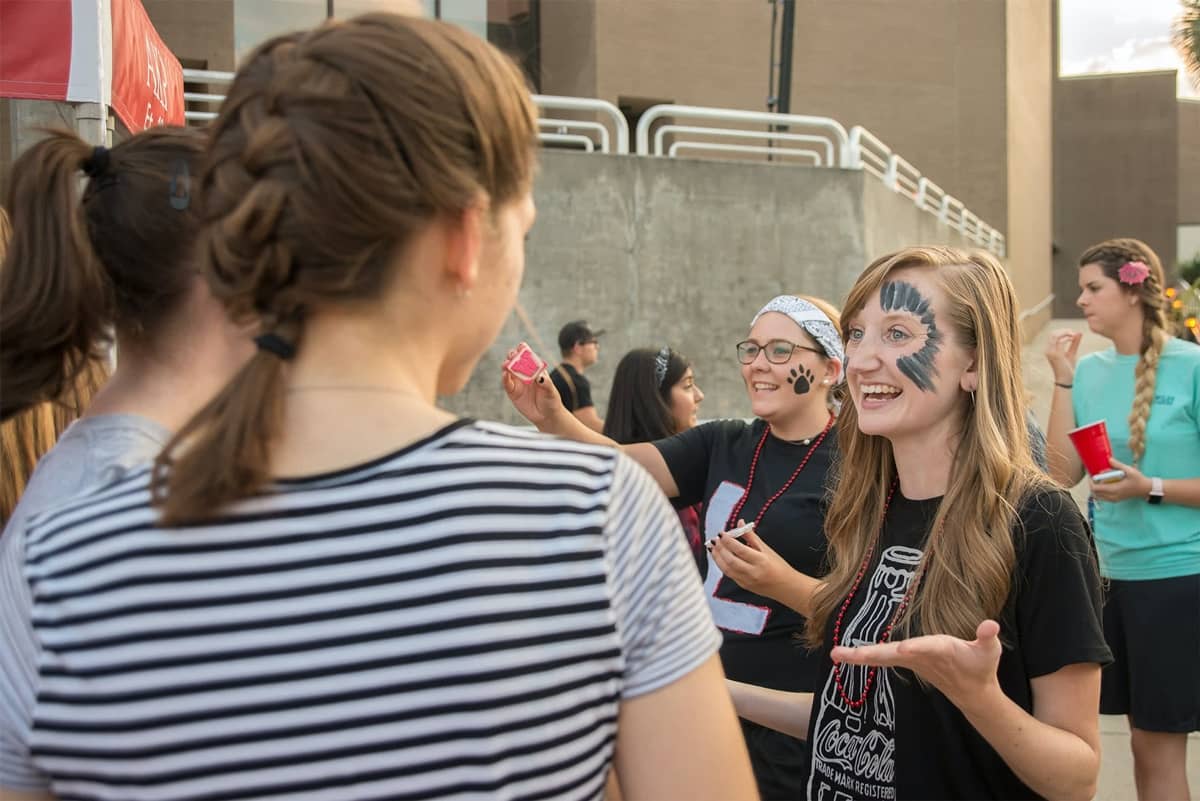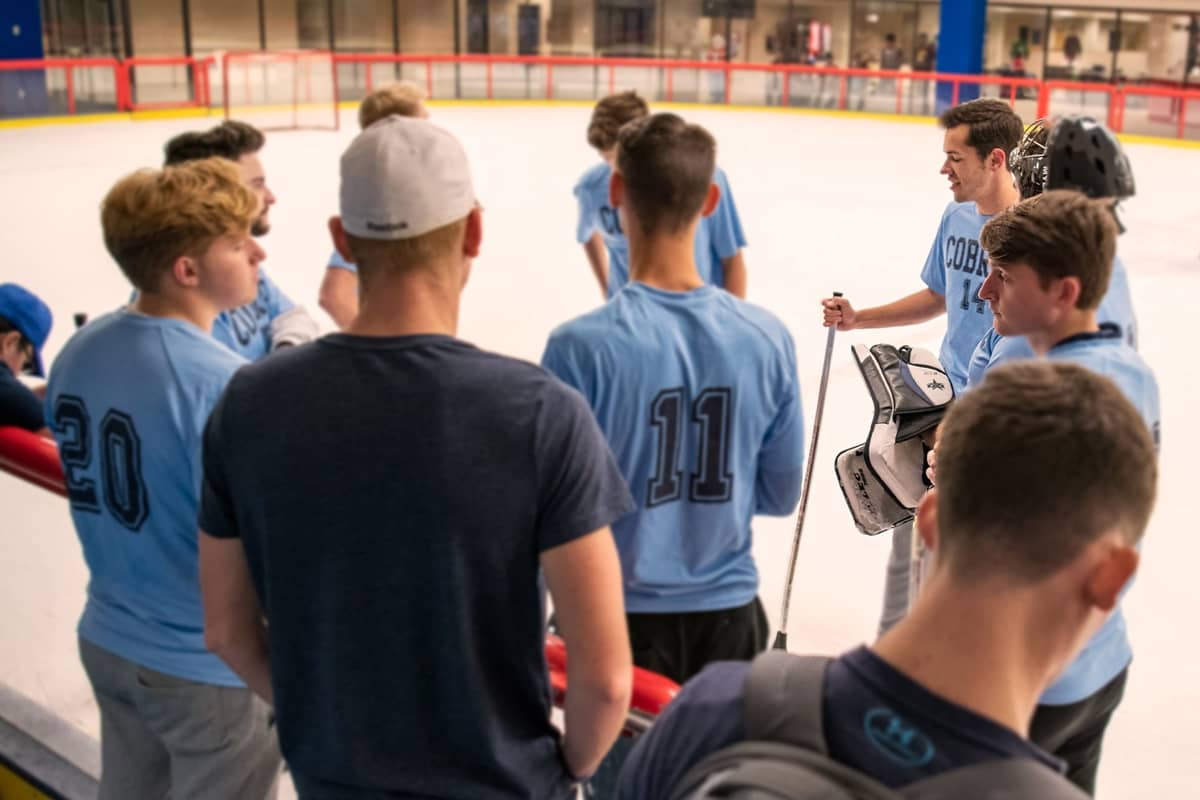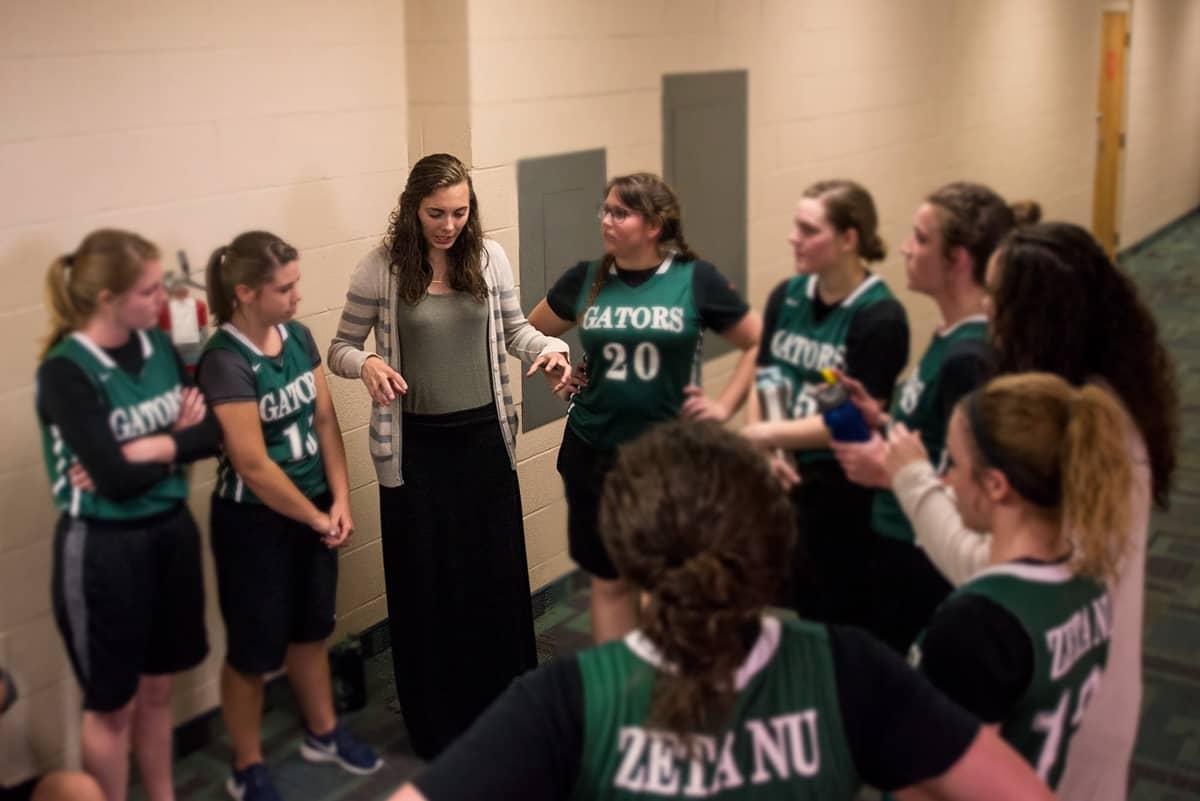Learning the ropes of Christian leadership can come from a number of places at Pensacola Christian College—being a collegian officer is one of them.
Each of PCC’s 48 collegians has seven offices that students can be elected to each semester—president, vice president, chaplain, secretary, chorister, athletic director, and collegian representative. Each office has its own responsibilities in helping the collegian meet the needs of its members. With so many events taking place—from sports to Christian Service—the officers must work together with a unified spirit.
The collegian representative is a designer who works with the other officers to nail down the collegian’s branding—what sets a collegian apart—and what biblical themes to focus on for the semester. This planning is reflected in the collegian clothing, branding for Greek Rush, and social media posts and photos. “I try to get the opinions of what my officers think the girls would like. From there I try to research what I think college-aged girls would appreciate,” said Lauren Miller (Sr., PA), collegian representative of the Zeta Delta Dolphins. “My position has shown me how to be a leader in that I have to make items that will please the entire collegian rather than just a select few.”
Although the athletic director manages all the collegian’s sports teams, he doesn’t always coach them. Some athletic directors choose to appoint a player to coach a specific team because he has a stronger understanding of the game, but the athletic director still does what he can to boost his teams’ morale at games.
“A lot of people look up to you, and your attitude [and] what you do and say can determine the attitude of others. I try to encourage my players to give their best and not get upset when things don’t go as we hoped,” said Anna Moore (So., VA), athletic director and volleyball coach of the Sigma Chi Tigers. “I try to lead by example, and by being coach, I get more of a chance to get to know the girls personally, become friends with them, and support them in that way!”
The chorister encourages worship during collegian meetings through songs and hymns as well as directs collegian choir practices and performances, should a collegian have one. The chorister may also work with the chaplain to select music that would complement the meeting’s devotional. “I enjoy [singing] hymns with the men,” said Jacob Vegter (Sr., FL), chorister of the Omega Chi Wildcats. “As an officer, I’ve seen how much of an influence we have on the guys in our collegian. We set the tone for the meetings and the collegian.”
The secretary organizes the attendance forms for meetings and outings, takes the minutes, and oversees the finances. Understanding how time is used in each meeting and how to budget for a collegian event allows the officers to determine how to plan activities for their members. “It seems stereotypical, but being a good secretary is all about organization,” said Katelyn Troutman (Jr., FL) of the Phi Sigma Pirates. “As secretary, I am a behind-the-scenes officer. I do let the members know that I am always there for them, and I am available whenever they need me.”
The chaplain is responsible for presenting a devotional during each meeting, often focusing on the semester’s chosen theme and encouraging members to grow closer to the Lord and to each other. “Looking from outside, it can seem like the officers have an easy job. Once in the position, though, it’s a different story!” said Jenna Widholm (Jr., GA), chaplain of the Zeta Tau Lancerettes. “It is a big responsibility, knowing that what I say can either encourage or discourage someone. It has pointed me more to the Lord, because I am not serving myself, but others.”
The vice president acts as the initiator, starting projects and encouraging member participation. He helps the other officers by taking on much of the action jobs such as working on and setting up the members-only collegian outing as well as other collegian activities.
As the manager and biggest supporter of the collegian, the president oversees all the officers, checking in with each one to ensure they are able to do their jobs efficiently. “I try to text them every once in a while to let them know I’m thinking of them and praying for them,” said Briana Chavez (Sr., VA), president of the Sigma Chi Tigers. “[Being president is] harder than most people realize. It helped me to see all of the ‘behind-the-scenes’ work that’s involved with putting collegian meetings and outings together, and it’s made me appreciate all of the help I get from my officers.”
Collegian officers know that their position isn’t just a title, but a responsibility. Having the opportunity to be a collegian officer can often teach time management and good leadership, but it can also show students how to adapt to new situations. “When you are a collegian officer, other people rely on you to accomplish the duties of your office and do them well,” said Samuel Mesa (So, VA), secretary of the Delta Chi Knights. “You find out really quickly how you react to responsibilities.”



